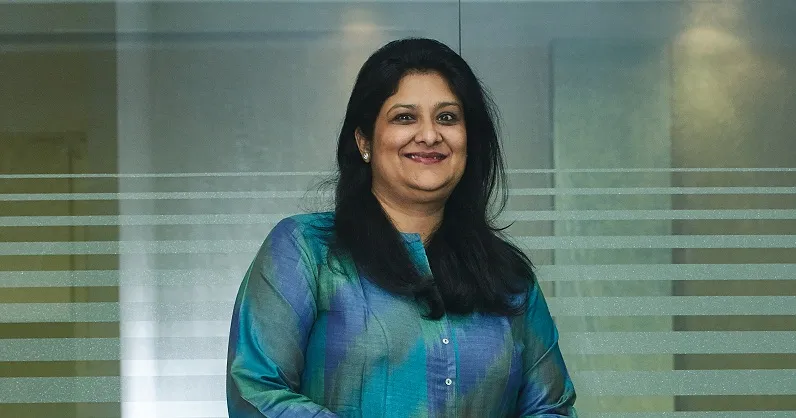Study consumer behaviour and usage of technology to succeed in retail, says CEO of Indus League
Brick-and-mortar retailing is changing faster than you think. The advent of new customer engagement technologies has created a new repository of data for retailers to use. However, the world of retailing is always going to be about understanding the buying habits and payment methods of the consumer. Rachna Aggarwal, CEO of Indus League Clothing Ltd, part of the Rs 3,300 crore Future Lifestyle Fashions Ltd, is always studying the millennial consumer. She says that the new generation shares data without any hesitation, thanks to the ease of shopping offered by smartphones.
The future is in omni-channel retailing, and retailers are experimenting with it. Rachna believes that building brands in India for the next generation is an opportunity because the new Indian is "experimenting" and "expressive". She believes that the behaviour of consumers and their usage of technology is something that every corporate has to study to be successful. Here are some excerpts of her interview with YourStory:

1. Everyone talks about brands, but Future Group went on to challenge conventional norms and changed the way Indians shopped in the last decade. What is changing in retailing?
RA: We all got used to brand stores in major cities. But today, we cannot ignore the social element in the business of retailing. Everybody is on Facebook, posting pictures to discuss their styles. Retailers must listen to these conversations because people are commenting real-time and they decide whether the style, colour and fit are a success. The analytics around these new forms of engagement are very important for brand strategy. Social media is a way of learning for corporates, and it allows us to construct likes and dislikes around a brand.
2. Are you saying the lines are blurring between offline and online channels?
RA: We have to track the way the consumer consumes information over the radio and TV, as well as in stores, and combine that with social data. We have to understand their decision making and make sure that our communication is integrated to win them over to our brands. It’s not about product anymore. For us, clothing is a service, the company has an umbrella of brands that cater to aspiration, premium and semi-premium formats. So each segment of consumers behaves differently. They are also on smartphones and want to experience shopping in all formats. So a retail brand such as ours should be available on various shopping channels.
3. What is omni-channel retailing?
RA: It is about meeting customer demand on the go, or on various platforms, and having supply chain processes tuned to this new wave of digital and physical shopping. The Future Group is working on omni-channel at one of our Indus League Clothing stores; we have a virtual trial room where the clothing line is mirrored on your image, either on the phone or the wall. This is a great example of new physical experiences for the consumer. These are learning stages for us. Times are changing at an incredible pace because of these new communications technologies out there. While it is still the product that decides the success of a company, we cannot ignore the fact that disruption in technologies and business models is happening faster. Disruptions that took five years earlier take only half that time now.
4. The impact of startups today, is it here to stay?
RA: When Indus League started 17 years ago, up to when we were acquired by the Future Group in 2005, we were a startup. Startups must accept failure and learn not to look at failure as a negative. One has to try several things before they get to know what works best. Today, we live in a collaborative world. Retail is going to be reinventing itself over the next decade in India, and not everything will go in the direction of e-commerce. In the USA too, e-commerce is less than 15 percent. Consumer behaviour will change and I observe in my own house how my daughter behaves differently in an information-heavy age. I think the future is about how they will leverage their network to buy things. Unlike the old days, where it was limited to family networks, today, consumers receive inputs from a variety of sources, and that’s influencing buyer behaviour tremendously.







